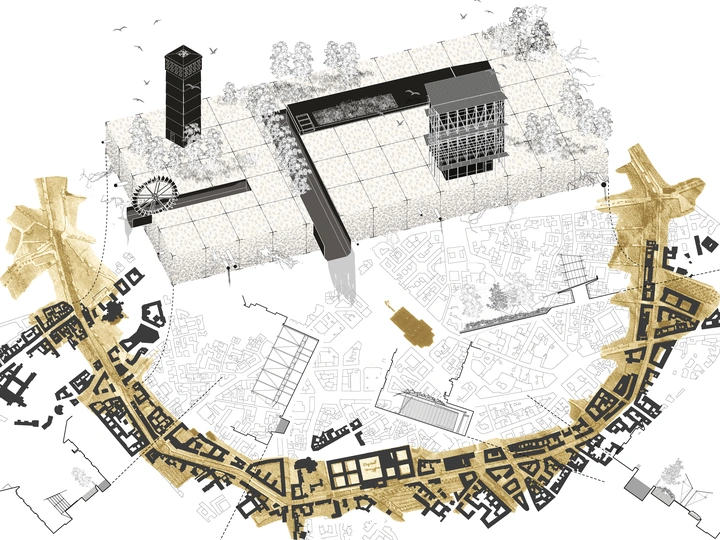Voices of commons as spatial practices

Kevin Santus
Arianna Scaioli
Frágil Fortuna is a collective founded in 2024 by Guillermo Sánchez Cárdenas, Kevin Santus and Arianna Scaioli, based between Milan and Lausanne. Combining curatorship, artistic practice and academic research, the collective explores the poetic and political potential of architecture facing climate crises and inequalities, rethinking ways of living and coexisting.
Frágil Fortuna’s works have been exhibited at the Klima Biennale Wien and selected at the Tallinn Architecture Biennale, LIGA Mexico City, and among the finalists for the Felix Candela Prize. The components of the Collective are:
Guillermo Sánchez Cárdenas, Architect and painter. His work has been exhibited at venues such as Art Basel Miami 2018, Milan Design Week 2024, and in group exhibitions in Zurich, Lausanne, Milan, and Mexico City. He has collaborated as a teaching assistant at IUAV and Politecnico di Milano.
Kevin Santus, Ph.D. Architect, currently a Research Fellow and Adjunct Professor of Architectural Design at the Department of Architecture and Urban Studies, Politecnico di Milano. He was a research consultant at the Brookfield Sustainability Institute in Toronto (2022-2023) and collaborates with the MEET Digital Culture Center in Milan. Besides he is a contributor for Domusweb, curator of books, seminars, and his work has been presented in several national and international publications and seminars.
Arianna Scaioli, Architect, PhD candidate, and Research Fellow at the Department of Architecture and Urban Studies of the Politecnico di Milano. She is teaching assistant in undergraduate and graduate courses. She collaborates with Sumita Singha (Ecologic Architects) on the international research project Feminist by Design. She has worked as a research consultant for the Brookfield Sustainability Institute (Toronto) and MEET Digital Culture Center, contributing to co-design and interdisciplinary research projects. She also curates seminars and publications on gender, care, and architecture.
In the context of growing social, gender, and territorial inequalities, amplified by overlapping ecological, economic, and political crises, the project identifies the concept of social care as a tool for regeneration, capable of acting on the habitability of places and their interactions between individual and society.
Focusing on the city of Milan, this framework materializes in an increasing environmental fragility, compounded by a housing crisis triggered by economic processes of exclusion, including limited access to service networks. This redefines architecture not as an object but as an instrument for the emancipation of unheard populations.
The project employs the practice of walking (Jane’s Walks) already tested by members of the research group as an exploratory and meta-design method to guide communities’ gaze toward places, practices, and actions of rediscovery and reactivation of urban spaces. Among these, the creation of small collective-use artifacts (urban furniture and micro-installations) co-designed with local communities becomes a tool for the activation and care of places. These have already been explored by the members through some design competitions and during the Design week 2024, examining temporary installations as devices for and by the commons.
Spatial care emerges as a way to weave collaborative networks and construct inclusive spaces capable of addressing inequalities.
This approach promotes ways of inhabiting rooted in sharing and democracy, rewriting the role of architecture as an agent of empowerment. The outcomes of these practices will be shared through a collective exhibition, giving visibility to processes, reflections, tools, and testimonies.
Finally, a series of open talks will foster public debate, encouraging dialogue among researchers, activists, and citizens. The aim is to situate this initiative within a broader, long-term process of place reactivation and community visibility, serving as both catalyst and driver.